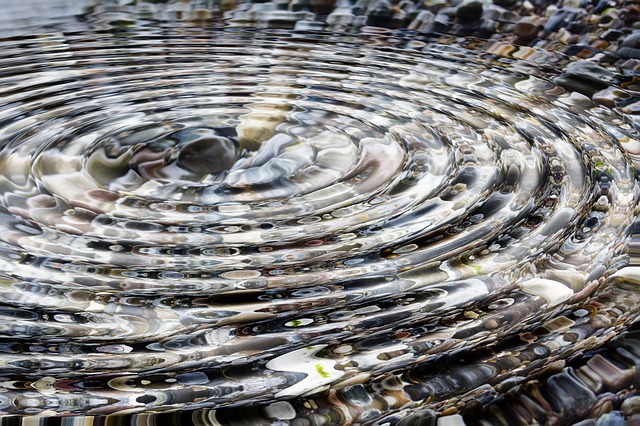lovelies, despite weeks of happy anticipation, i won’t be at @LCC2020SanDiego after all 😔
— S.G. Wong is writing. No, really. (@S_G_Wong) March 8, 2020
(medical condition puts me at high risk + import of LRT tbh) pic.twitter.com/ABEWNkp8aO
How do you know if the choice you’ve made is good or bad?
It seemed like a no-brainer for me to cancel my trip to San Diego for the Left Coast Crime convention this week. I have a long-standing medical condition. I’m not immunocompromised, but I am nevertheless categorized as high-risk. Given how the U.S. as a whole is handling coronavirus and COVID-19 (esp. as compared to faster-reacting nations), it’s perfectly sensible for me—a person who will need immediate hospitalization in order to manage my medical condition if taken ill—to stay away from one of the states experiencing a concentrated outbreak.
And yet, I felt little to no relief once I made the choice to stay home.
That’s not usually the case for me when I have to make a difficult decision. My normal SOP is to grapple seriously with the options I see before me, and then once I make my choice, to feel a certain lightness. Not always because I feel righteous, but more because I’ve come to accept whatever consequences will come out of that choice.
In this case, though, I am certain it’s the right call. I’m not only protecting myself, but everyone in my immediate family and my community as well. In my home province of Alberta, there’re now 7 confirmed COVID-19 cases, two of which are in my home city region. The last RT I refer to in my tweet at the top of this post refers to a long Mar. 6th thread by @LizSpecht which tackles expected burdens on hospital beds and face masks vis-a-vis health care workers. Reading it, I realized that I have a responsibility to my community at large to keep resources free for those more vulnerable than I am, and for those working the front lines.
But I don’t feel much lightness about the right call. I haven’t gained any satisfaction from being responsible in this situation. It feels like I’ve traded away what’s sure to be a really fun and restorative time (re-connecting with writer friends, being on my own schedule, learning more about craft and publishing, etc.) for…nothing happening..? You bet I feel disappointment Despite my best efforts at maturity, FOMO is still wicked strong—but it’s not just about missing out. I made the choice on Friday night, but it’s taken me til this morning to work out what’s at the heart of my discontent. (Yeah, I spent the weekend totally bummed out. I may have been moping. I may have eaten my feelings.)
The truth is, I hate making knee-jerk decisions based on fear.
Not that fear, in and of itself, is a bad thing. It, like anger, can be educational. It can fuel split-second actions that save our skins. It can teach us to avoid harm, to ourselves and to others. But, just like when we’re angry, we need to be conscious of when it’s running our decision-making faculties, so that we can still be empowered to choose mindfully. For me, the mindful aspect is so important because that’s the part when I see the consequences in front of me, of any given choice, and in seeing them clearly (or as clearly as I can at that moment), I understand what my choice will mean. That clarity makes space for me to choose.
For me, this specific choice sprouted from a desire to be responsible—for my health, for my family, for my community. I certainly felt quite a lot of fear and anxiety in reading all the different news pieces and twitter threads by epidemiologists, scientists, and medical professionals when I was weighing my options to attend Left Coast Crime. And when I made my choice, finally, on Friday night, I definitely felt the weight of that fear riding me—but it had become such a normal part of my daily routines that I couldn’t see it for what it was. It was like it rode in my blindspot, so whichever way I turned to consider my options and consequences, it continued to influence me without my conscious knowledge. It’s no surprise, then, that I still felt weighed down even after I made a choice.
Now that I see that fear clearly, I don’t feel disempowered anymore. I’m still disappointed to miss old friends and to miss the chance to make new friends among the awesome people who’ll be at LCC, don’t get me wrong. But there’s a measure of peace now, knowing fear was only the catalyst for the question, and that I made this choice with its attendant consequences, which I now see clearly and accept.
So, to answer the question I posed at the top of this post: choices are neither good nor bad. There are choices we like or are willing to accept the consequences for, and there are choices we don’t like, for which we absolutely do NOT want to accept the consequences. Sometimes, we think we know what the full consequences will be for a given choice, only to discover otherwise after the fact. That can totally suck, or it can result in pleasant surprises. That’s literally a normal part of life.
In the moment, it can feel like there are only bad options to choose from. That’s definitely the space I was in all last week and this past weekend. But if you take anything away from this post, I hope it’s that you don’t need to stress out about making good choices or right choices all the time. Perfection is contrived and an impossibility. The measure of us as human beings is how we handle the myriad imperfections which spring up for each of us.
The only choices we need to make are the ones we can live with.

